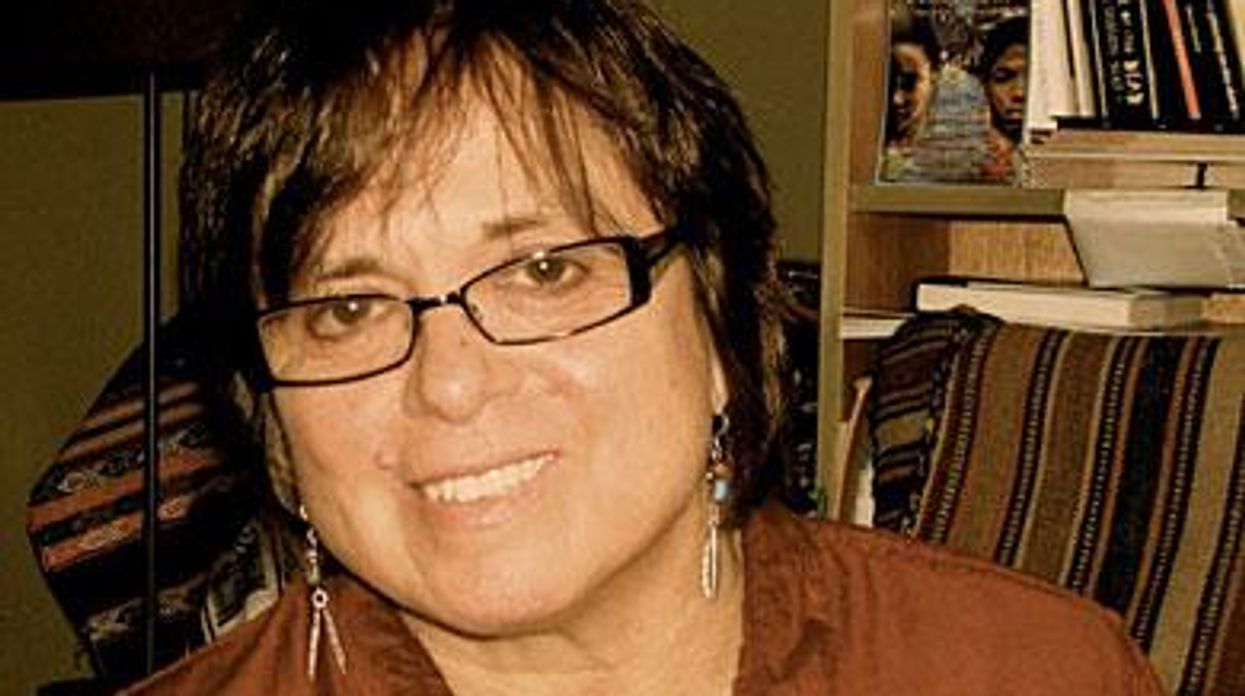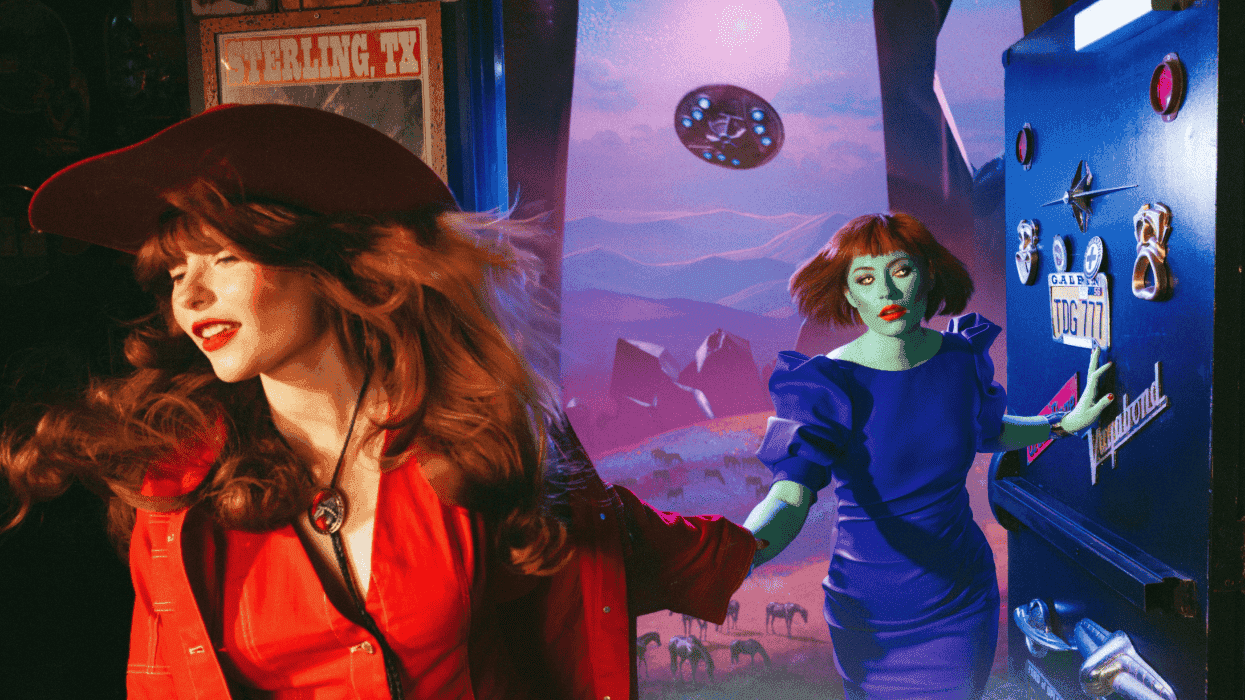A few years ago I unwittingly asked an undergraduate Chicano/a Studies student who Cherrie Moraga was. I'll never forget her response: "Oh, my God! She's only like the original queer, Xicana with an x, feminist-activist-poet-author!" As if there were other queer, Xicana with an x, feminist-activist-poet-author impostors out there. So if you were like me then and don't know who she is now, here's your chance to avoid such a reaction from a pretentious undergrad.
For over 25 years Cherrie Moraga has written, theorized, taught, and performed extensively on what it means to be openly queer and Xicana (an abbreviated and politicized version of the term Chicana) in today's ever-changing world. Moraga has authored an array of critically acclaimed works that include over a dozen books, countless essays, and several plays. Moraga is currently the artist in residence in the department of drama and the Comparative Studies in Race and Ethnicity program at Stanford University. She is also lead faculty member in the Identity, Diversity, and Aesthetics program, which offers a special emphasis on people of color arts theory and practice.
A winner of the U.S. Artist Rockefeller Fellowship for Literature in 2007, a Creative Work Fund Award in 2008, and the Gerbode-Hewlett Foundation Grant for Playwriting in 2009, Moraga is as celebrated an author and playwright as you're going to find. And with a new play hitting the stage this January and her memoir, Xicana Codex of Changing Consciousness, already out from Duke University Press, Moraga aims to come full circle and "return to the same place, but as a different person and a different artist.
The new play, titled New Fire: To Put Things Right Again, is Moraga's first theatrical work in over 15 years and is highly anticipated across her varied audience of college students, academics, theatergoers, and readers. The play, opening January 13 in San Francisco, is coproduced by Cihuatl Productions, an Oakland, Calif.-based production collaborative that Moraga is part of. New Fire applies folkloric, historical traditions to modern-day problems in order to force the audience to examine and look ahead to what Moraga calls a "crucial near-present."
Countering New Age apocalyptic predictions for 2012, the structure of the play draws on past indigenous practices from southern Mexico to embrace what Moraga describes as a pivotal moment in human history. As she put it to me, "If this is an emergence of a new human consciousness as the Mayans predicted, then the question is, Well, how do we get well? How can we get ourselves in a place where we can get emboldened to be able to change the conditions we are living in right now?"
Changing conditions is something Moraga is well versed in. Growing up in Southern California, two blocks away from the San Gabriel Mission, Moraga was raised in "a very Mexicana-Catholic type thing." During her time at Immaculate Heart College, a small liberal arts school located just outside Los Angeles (which closed its doors in 1981), Moraga first realized that fulfilling a queer identity was a multilayered process for her. According to Moraga, attending a school that "had a lot of radical Chicanos and a lot of queer people that were out and running around" forced her to reevaluate what it meant to be a Chicana lesbian in particular and a queer woman of color more generally. After college, Moraga felt she needed to leave her native San Gabriel if she was to expand as an artist and as a person.
"During that time when I was coming out, it was a little too close to familia, you know? At that time I just felt like I wasn't going to be able to be openly lesbiana in the world and then go home and see my family -- I needed that 400 miles of space," Moraga explained. So she decided to move north to Oakland, because, among other things, as Moraga says jokingly, "it was more progressive and had less smog."
Moraga first came to national and academic prominence in 1983, when along with the revered Gloria Anzaldua, she edited the first collection of essays written exclusively by queer women of color. This Bridge Called My Back: Writings by Radical Women of Color became the seminal theoretical framework with which an entire generation of previously underrepresented lesbian and bisexual women came to identify. By linking issues of race, class, sexuality, and gender with ethnicity and feminism, This Bridge opened new avenues for coalition-building among different social groups and was largely credited with ushering in the era of third wave feminism. In 1986, This Bridge gained wide and mainstream recognition when it won the prestigious Before Columbus American Book Award.
This Bridge grew out of the work produced in a publishing collective Moraga and other influential authors such as Audre Lord and Barbara Smith cofounded in the early 1980s called Kitchen Table: Women of Color Press. This was a transformative experience for Moraga because it allowed her to merge her passion for poetry with her focus on critical cultural studies.
Moraga describes the first play she ever wrote, Giving Up the Ghosts (1986), as "very poetic, and not so much a play." After submitting her play to the New York Hispanic Playwrights Workshop, run by renowned Cuban-American playwright Maria Irene Fornes, Moraga won critical acclaim. It was then, Moraga says, that she was able to "discover herself as a playwright."
Today, Moraga is much more than the original lesbian(a), xicana with an x, feminist scholar that know-it-all undergrad told me about. She is a living legend of sorts. In theater courses her name often appears in syllabuses along with those of Samuel Beckett, Arthur Miller, and Tennessee Williams. Considering the niche personal narrative from which Moraga writes, it is a testament to the power of her work that she has enjoyed such widespread adulation.
Her gay characters are not hyper-flamboyant, her Mexican-American or Chicano characters are not super-religious or simple servants, and her female characters are not helpless victims needing validation from a man. The beauty of Moraga's work lies in her representations of people who belie popular notions and stereotypes of self and being. Moraga's work goes beyond merely representing the interplay between power, difference, and sexuality -- it expresses it and challenges the reader or viewer to think about these fundamental issues and why they are important in a larger context.
When asked about recent political and legislative changes affecting the different LGBT populations, Moraga said she has always preferred to look at the bigger picture. For Moraga, progress must be viewed through multiple social lenses. The notion of being able to view one's own position in society in order to analyze the power relations evident in it is a common theme throughout her work. The concept of intersectionality (first developed in the late 1980s) is a feminist sociological tool used to look at the relationships among multiple levels of social identities. Intersectionality looks at how socially constructed characteristics such as race, class, and gender work together to contribute to social inequality. As Moraga puts it, "As queer people, we should not just worry about our right to get married or our right to have sex without punishment -- it's not a single-issue movement."
Achieving full equality on a large scale will first require consensus on which battles should be waged. For Moraga, this will only be possible by focusing on similarities rather than differences, "I feel that as queer people, we always need to remember and remind ourselves to think of our intersectionality -- that position where all of those things that affect us come together. After that we must ask, What is then our project as queer people -- is it just related to homophobia? And I know it is not."
New Fire:To Put Things Right Again runs from January 13 through 29, with preview performances January 11 and 12, at San Francisco's Brava Theater; tickets are now on sale.















Charlie Kirk DID say stoning gay people was the 'perfect law' — and these other heinous quotes
These are some of his worst comments about LGBTQ+ people made by Charlie Kirk.